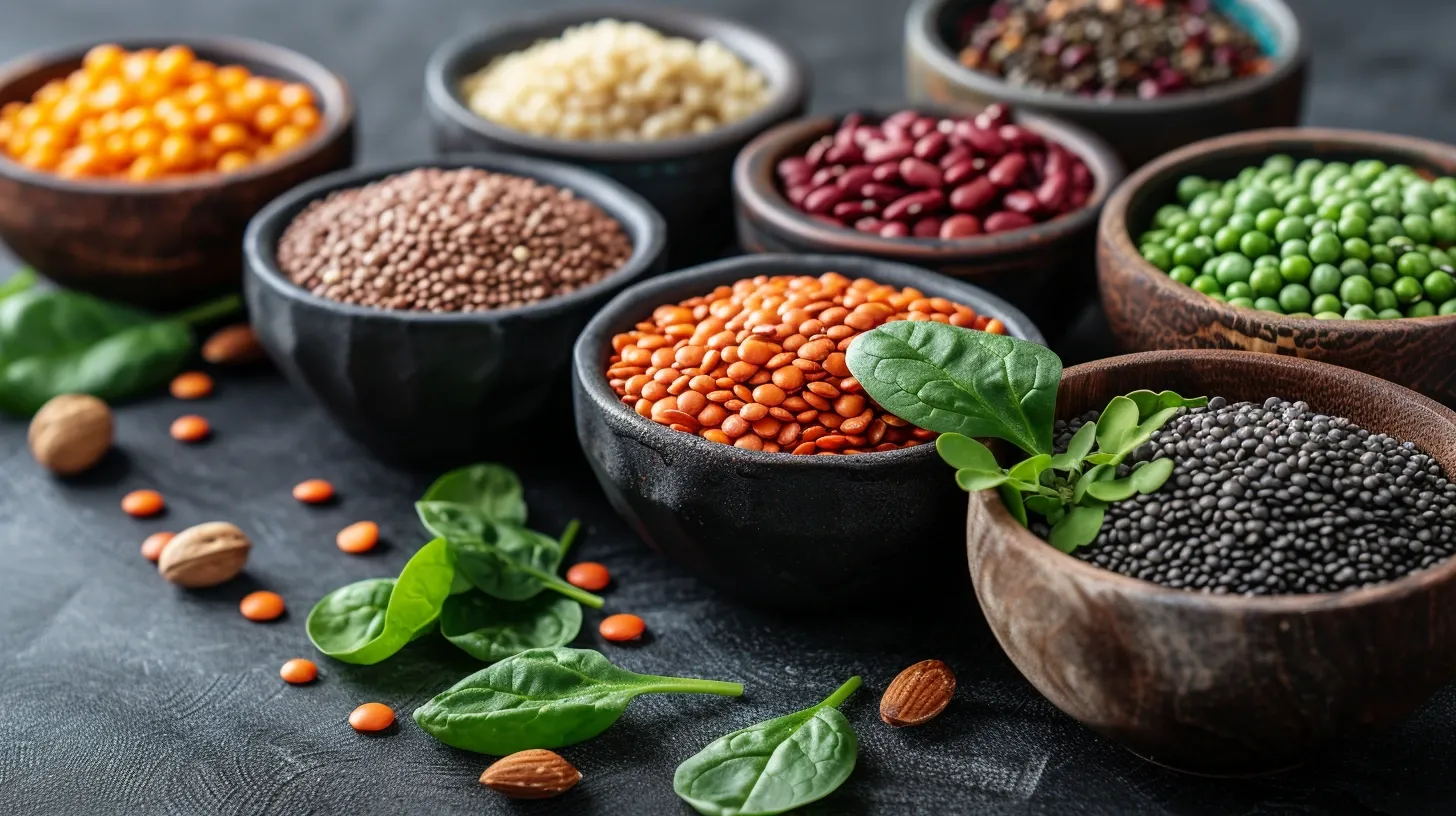13 February 2024
Conquering Iron Deficiency in Vegetarians: A Pathway to Better Health.

Press the play button in the top right corner to listen to the article
Iron deficiency is a common nutritional challenge that vegetarians face, given that the most abundant sources of iron in the diet typically include meat and fish. This essential mineral plays a critical role in producing hemoglobin, a protein in red blood cells that transports oxygen throughout the body. A deficiency in iron can lead to anemia, characterized by fatigue, weakness, and impaired immune function. However, with informed dietary choices and strategies to enhance iron absorption, vegetarians can effectively manage and prevent iron deficiency.
Understanding Iron Absorption: Heme vs. Non-Heme Iron
Iron comes in two forms: heme and non-heme. Heme iron, found in animal products, is more readily absorbed by the body compared to non-heme iron, which is predominant in plant-based sources. This distinction underscores the challenge for vegetarians in achieving their iron requirements. However, the body can adjust the absorption of non-heme iron based on iron stores and dietary intake, presenting an opportunity for vegetarians to optimize their iron levels through diet.
Iron-Rich Foods for Vegetarians
A variety of plant-based foods are rich in iron, offering vegetarians a viable pathway to meet their iron needs. Some of these iron-rich foods include:
Legumes: Lentils, chickpeas, beans, and soybeans are excellent sources of iron.
Nuts and Seeds: Pumpkin, sesame, hemp, and flaxseeds, along with cashews, pine nuts, and almonds, are not only rich in iron but also in protein and healthy fats.
Whole Grains: Quinoa, fortified cereals, brown rice, and oats contain significant amounts of iron.
Leafy Greens: Spinach, kale, and Swiss chard are potent sources of iron and other vital nutrients.
Dried Fruits: Apricots, prunes, and raisins can boost iron intake and provide a healthy, sweet snack option.
Optimizing Iron Absorption from Plant-Based Foods
Enhancing the absorption of non-heme iron is crucial for vegetarians. Several strategies can help increase the bioavailability of iron from plant sources:
Vitamin C: Consuming vitamin C-rich foods (such as oranges, strawberries, bell peppers, and broccoli) alongside iron-rich meals can significantly enhance iron absorption.
Avoiding Inhibitors: Certain components in foods, like phytates (found in grains and legumes), calcium, and polyphenols (in coffee and tea), can inhibit iron absorption. Soaking, sprouting, and fermenting grains and legumes can reduce phytate levels, and consuming iron-rich foods apart from calcium-rich foods and beverages can mitigate inhibition.
Cooking in Cast Iron: Using cast iron cookware can increase the iron content of food, especially acidic foods like tomato sauce.
Conclusion
Iron deficiency need not be an inevitable consequence of a vegetarian lifestyle. By incorporating a variety of iron-rich plant foods into their diet and employing strategies to enhance iron absorption, vegetarians can effectively manage their iron levels. It's important for vegetarians to monitor their iron status, particularly for those at higher risk of deficiency such as pregnant women, adolescents, and athletes. Consulting with a healthcare provider or a dietitian can provide personalized advice and dietary plans to ensure adequate iron intake and overall nutritional balance.
The content, including articles, medical topics, and photographs, has been created exclusively using artificial intelligence (AI). While efforts are made for accuracy and relevance, we do not guarantee the completeness, timeliness, or validity of the content and assume no responsibility for any inaccuracies or omissions. Use of the content is at the user's own risk and is intended exclusively for informational purposes.
#botnews















































































